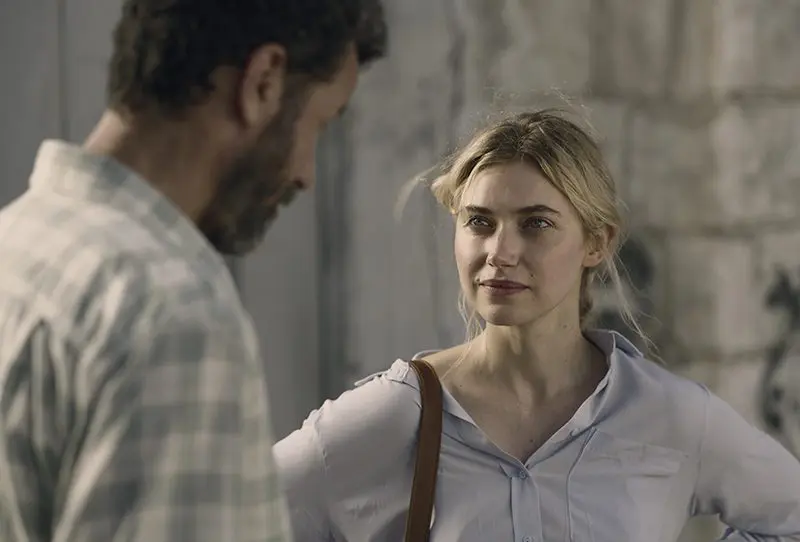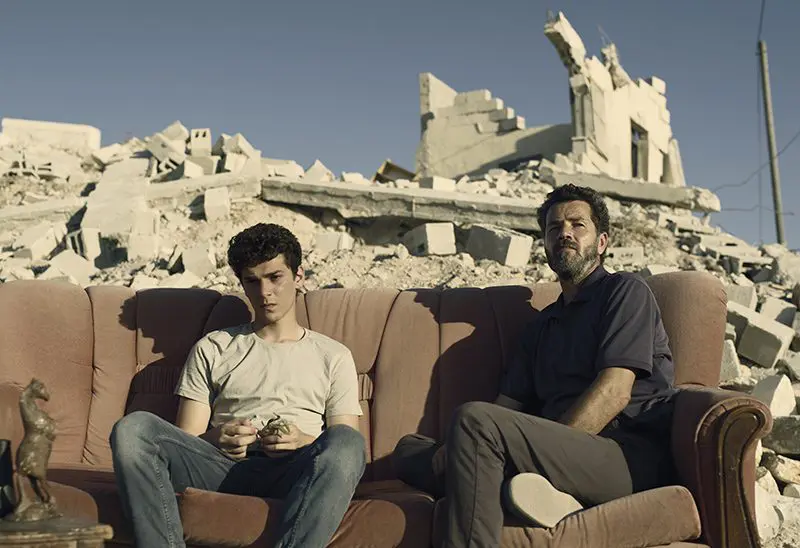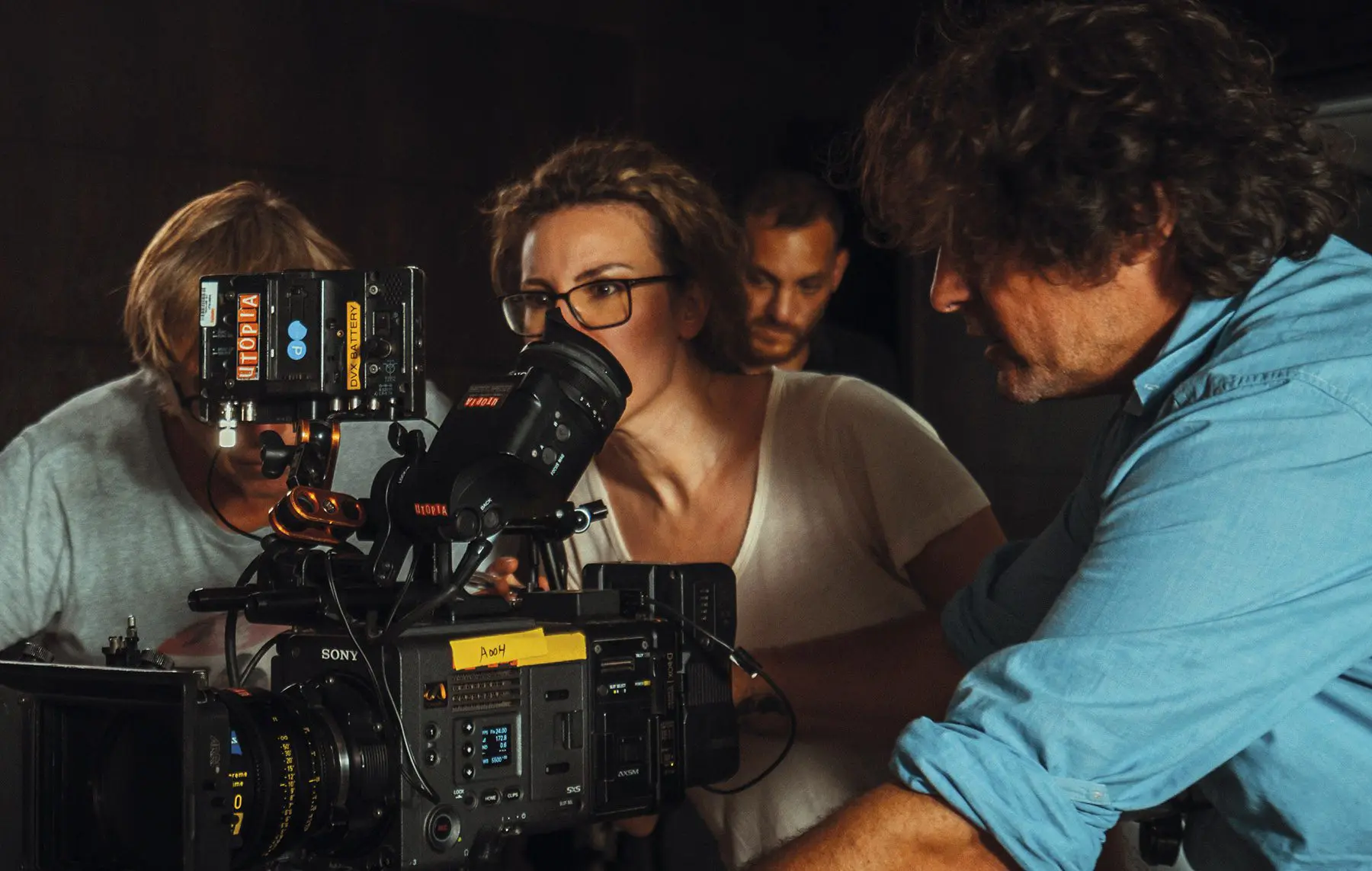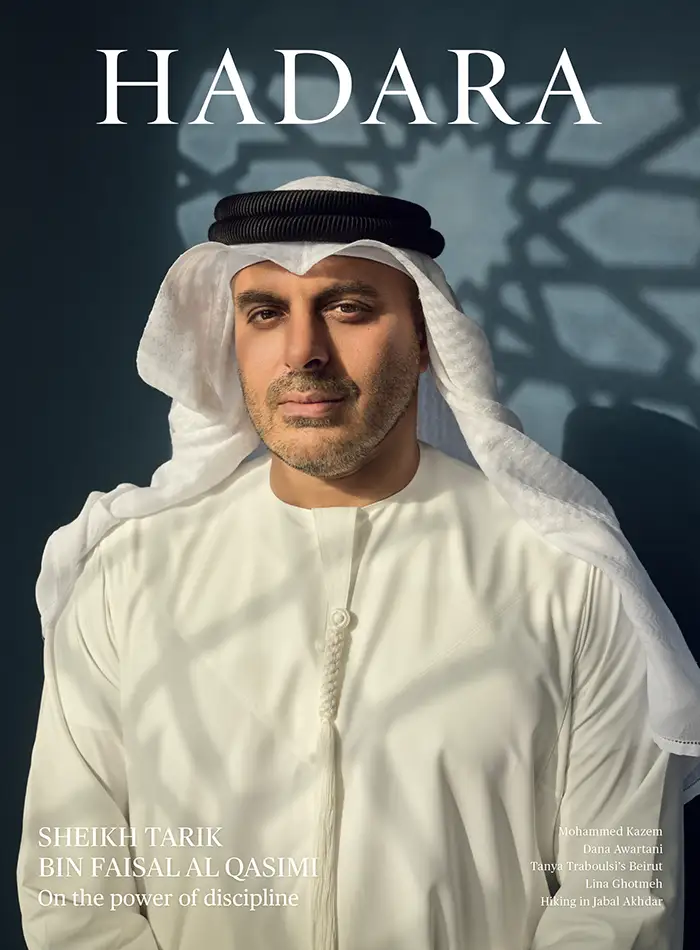Never, Yet Always, Home
With her first full-length film, British-Palestinian filmmaker Farah Nabulsi explores the tragedy of Palestine through granular, human details.
By William Mullally
It’s easier to shut one’s eyes to tragedy and injustice from a distance. For more than 27 years, British-Palestinian filmmaker Farah Nabulsi didn’t visit her ancestral homeland—annual family trips were halted with the first Intifada in 1987, when she was nine. Born and raised in London, she built a successful career as an investment banker and entrepreneur. Palestine was in her heart, but not in her life.
But that changed with her return in 2014, her first as an adult. As she travelled across the West Bank, meeting people and hearing their plight, she saw lives far worse than she’d imagined. She processed what she saw and heard by writing.
“At first my writing was therapeutic,” Nabulsi says. “On the page I began to place myself in the shoes of the people I’d met, and it quickly became clear that empathy was the best way to truly understand. I had to learn people’s stories to connect to their hearts. I always had a vivid imagination, I was always a storyteller, I’d just lost contact with it. But now I was suddenly compelled to tell stories, because I had to tell their stories.”
Nabulsi became a filmmaker. Though she had never gone to film school, she adapted her writing and ideas into short films, for years acting only as a producer, finding seasoned professionals for the rest. But with each work she grew more confident, eventually directing the 2020 short film The Present, which changed everything.
She won a British Film Award (BAFTA) for best short film and was nominated for an Academy Award. The film, about a man and his daughter as they attempt to pass through West Bank checkpoints in order to bring the girl’s mother a gift, gained even more buzz when it hit Netflix. Former CIA Director John Brennan wrote an opinion piece about it in the New York Times: “Why Biden Must Watch This Palestinian Movie”. Suddenly Nabulsi had offers to direct a Hollywood blockbuster. “Everywhere I went the question became, ‘what are you going to do next?’ And that was harder to answer than I think people realised,” she says.


For her first full-length feature, Farah Nabulsi was reunited with actor Saleh Bakri, with whom she had worked on her Oscar-nominated short, The Present. Top, Bakri and British actor Imogen Poots, who plays a British volunteer worker. Bottom, Bakri with Muhammad Abed El Rahman, who plays Adam.
Her heart was still with Palestine. Those were the stories she had to tell, because those were the stories the world needed to hear. “I have to lend my artistic expression to give voices to people that have been disregarded or ignored, excluded or misrepresented. And you just hope you’re doing so at a time when people will be receptive. And I do think, for Palestine, we’re finally in that time when people are ready to hear their stories.”
Her first full-length feature, The Teacher, premiered at the Toronto International Film Festival last September before hitting cinemas across the Middle East in February, ahead of a planned expansion across the world in the coming months. It provides no easy answers, nor pure, heroic characters. Nabulsi depicts the life of another fictional man, played by Palestinian actor Saleh Bakri, who was also the star of The Present. This man, however, is not the kindly, innocent father Bakri played there. Instead, Basem is a teacher at his wit’s end, compelled onto a path of resistance in order to protect his besieged community, who makes choices more morally complicated than his kind exterior may suggest.
British actress Imogen Poots plays an international aid worker who falls in love with the titular teacher, but who has trouble processing the life he hides from her when he reveals the lengths to which he’s gone.
“It may seem strange to hear, but I didn’t intend The Teacher to be a political film. While it’s impossible to tell a story of Palestine without it being interpreted to have a certain meaning, I can say with certainty that there’s no clear message within this film—rather, there are points that I hope [will] start conversations,” Nabulsi says.
To ground the film in reality Nabulsi filmed for months on location in the West Bank, in some of the same villages that sparked her epiphany in 2014.
“It was painful to be away from my family, and in that environment, no day on set came easily. I ended up feeling like I’d given birth to another child, but I also knew it was nothing in comparison to the real-life suffering around me. That allowed me to push through, recognising that my privilege came with a responsibility to push forward,” Nabulsi says.
Throughout the process, just as she had since the day she started writing, she doubted herself. Who was she, she thought, to tell this story? And even if she did, would anyone see it? As she toured film festivals with The Present, she met many filmmakers who had thrown their life into this art form yet whose movies never found an audience beyond those early screenings.
“Hollywood is a creative graveyard,” Nabulsi laments. “Sustaining success feels impossible when you realise how many thousands of films are made each year that are forgotten in an instant. So I thought, have I hit my limit? Will this story resonate? Will The Teacher have a moment of its own?”
It wasn’t clear to her that she would again find success until her first test screening, at which she showed a rough two-and-a-half-hour cut of the film to a single theatre of people. “The feedback I got was overwhelming,” she says. “People told me they were in the street talking about it, unable to go home. They were on the train home hours later and still picking it apart and piecing it together for themselves. I was so happy—that was all I had ever dreamed of.”
And now, as the world watches the unfolding catastrophe in Gaza, The Teacher resonates more strongly than Nabulsi could have imagined. She was particularly struck when, after the film picked up the jury prize at the 2023 Red Sea International Film Festival in December, Hollywood actor Joel Kinnaman and director Baz Luhrmann took her aside to say how deeply the film had affected them, and how vivid it had made the plight of the Palestinian people.
That’s what Nabulsi wants for viewers—to experience the same epiphany, and empathy, that she did, to take an obfuscated tragedy and imbue it with humanity. Because once you put your feet into the shoes of another, they never truly leave.
Opening image courtesy of Farah Nabulsi; Stills courtesy of Goodfellas




